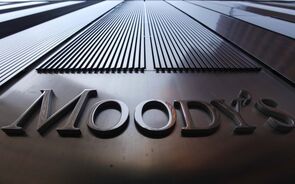Bernanke ( is ) Fixing Financial System
1 Mensagem
|Página 1 de 1
Bernanke ( is ) Fixing Financial System
Bonds, Stocks Show Bernanke Fixing Financial System
By Bryan Keogh
April 29 (Bloomberg) --
Federal Reserve Chairman Ben S. Bernanke is persuading investors that the financial markets are working again.
The Standard & Poor's 500 Index gained 8.4 percent since the central bank backed the purchase of Bear Stearns Cos. on March 16. Companies sold $45.3 billion of debt last week, the most ever. High-yield bonds are poised for their best month in five years and mortgage securities are outperforming Treasuries for the first time in 2008.
``In the near term, if he's a triage nurse, you have to say he's definitely stabilized the patient,'' said James Swanson, who helps oversee $204 billion as chief investment strategist at MFS Investment Management in Boston. That's what I'd call it, a triage nurse using radical procedures. But they worked. Whether they'll be proven right in the long run, I don't know.''
By cutting interest rates six times since September, backing the Bear Stearns takeover and pumping $915.5 billion through the financial system, Bernanke provided relief to investors stunned after banks reported $312 billion of losses and writedowns from mortgage-related securities and leveraged loans.
Policy makers meet today and tomorrow to set interest rates. Futures contracts on the Chicago Board of Trade show there's an 80 percent chance the Fed will cut its target for overnight lending between banks by a quarter percentage point to 2 percent.
Citigroup Inc., the biggest U.S. bank by assets, and Merrill Lynch & Co., the largest broker, together recorded $72.6 billion of losses and writedowns as subprime loans infected credit markets. Last week, the New York-based companies led bond sales with a total $15.6 billion.
Subprime Collapse
While the collapse of subprime mortgages in July caused the credit market seizure, AAA securities tied to similar loans returned 0.12 percentage point more than Treasuries this month, the best since December, according to Lehman Brothers Holdings Inc. index data. Mortgage bonds guaranteed by government- chartered Fannie Mae and Freddie Mac returned 0.67 percentage point more than Treasuries as of April 25, the most since September 1999.
``The markets are giving him credit for having turned the corner and bringing stability back,'' Kenneth Hackel, a managing director for fixed-income strategy at Greenwich, Connecticut- based RBS Greenwich Capital Markets, said of Bernanke. The firm is one of 20 primary dealers that trade with the Fed. ``Issuers are able to come to market and investors have some confidence in their willingness to put riskier assets back on their books.''
Bernanke slashed the central bank's target rate for overnight loans between banks by 2 percentage points since January, the fastest reduction in two decades.
`Radical, Shocking Stuff'
The Fed began auctioning as much as $200 billion of Treasuries as loans to primary dealers last month, and backed New York-based JPMorgan Chase & Co.'s purchase of Bear Stearns. Policy makers offered loans to securities firms as part of its biggest expansion of credit since the Great Depression.
``It was radical, shocking stuff,'' said MFS's Swanson. ``He's really way out there, preemptive and radical.''
Bernanke was responding to the paralysis caused when AAA subprime-related securities suddenly started behaving like junk bonds as defaults by borrowers with poor credit rose to the highest on record.
As demand for all but the safest government debt evaporated, banks were left with more than $230 billion of loans used to fund leveraged buyouts. Investors fled commercial paper backed by mortgages and credit cards, reducing the amount of the debt outstanding by 36 percent to $767.1 billion since August.
Limits to Confidence
Money markets still show limits of investor confidence. The difference between the yield on three-month Treasury bills and the rate on dollar-denominated loans in London, an indication of credit risk known as the TED spread, expanded to 1.43 percentage points from this year's low of 0.78 percentage point on Feb. 12.
``The reluctance of banks to lend is still ongoing from last summer,'' said Moorad Choudhry, an economics professor at London Metropolitan University, and co-author with Frank J. Fabozzi and Steven V. Mann of ``The Global Money Markets.''
Citigroup Chief Executive Officer Vikram Pandit said April 22 that the credit-market contraction is abating, echoing remarks by Jamie Dimon, his counterpart at JPMorgan, who said April 16 that the credit-market freeze is more than half over. Richard Fuld, CEO of Lehman, Goldman Sachs Group Inc. CEO Lloyd Blankfein and Morgan Stanley CEO John Mack offered similar assessments.
The S&P 500 is up 5.6 percent this month. Finance company shares rose the most, gaining 14 percent on average. Citigroup advanced 36 percent on the New York Stock Exchange and Merrill Lynch is up 14 percent.
High-yield bond returns may be the best since 2003. Company debt rated CCC or less by S&P returned 6.75 percent since March 17, compared with 5.02 percent for all junk bonds, Merrill Lynch index data show. Junk bonds are rated below Baa3 by Moody's Investors Service and BBB- at S&P.
Será que o Ben Bernanke consegue remediar o legado do Greenspan . Quem sabe, parece achar que sim ...
Um abraço ,
The Mechanic
" Os que hesitam , são atropelados pela retaguarda" - Stendhal
"É óptimo não se exercer qualquer profissão, pois um homem livre não deve viver para servir outro "
- Aristoteles
http://theflyingmechanic.blogspot.com/
"É óptimo não se exercer qualquer profissão, pois um homem livre não deve viver para servir outro "
- Aristoteles
http://theflyingmechanic.blogspot.com/
1 Mensagem
|Página 1 de 1
Quem está ligado:
Utilizadores a ver este Fórum: Bing [Bot], Google Adsense [Bot], Kooc, m-m, macau5m, paulopereira.pp36.pp e 226 visitantes


